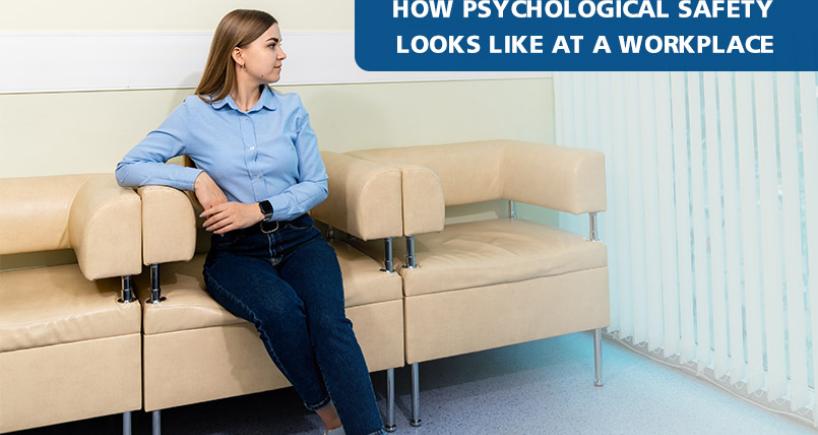
How Psychological Safety Looks Like At A Workplace
Do you feel safe, respected and heard when you share opinions, raise concerns or ask questions at your workplace? Is yes, then that is what psychological safety at a workplace looks like.
A psychological safe environment provides you with a sense of safety and a belief that you will not be humiliated or punished for expressing yourself in front of others. It is the ability to inculcate a sense of shared belief among peers and foster a culture that is supportive and respectful towards your ideas, concerns or mistakes.
Psychological safety is not constant niceness or a freedom from accountability rather it more about being given the opportunity to disagree contribute, learn, and grow without the fear of being marginalised in some way.
Significance of Psychological Safety at the workplace
For an organisation to perform well, it is essential that it leverages the talent and strength of its employees. That would be possible only if you feel comfortable in speaking up for yourself, sharing novel ideas or asking naïve questions. It fosters a sense of organisational commitment and enhances engagement which includes being a part of team activities, collaborating, resolving problems and finding creative solutions to them.
Safe work environments welcomes team inclusivity and diversity which is not only important for the organisation but also for its employees. You feel included and flourish while working with such teams despite the presence of individual differences.
Tips to foster a Psychological safe workspace
- Encourage your peers to weigh in their opinions and ideas. Ask them open ended and thought provoking questions. This is essential when they struggle to open up and find it challenging to express themselves. Once they do so, provide a non-judgemental ear to them and make them feel heard. Ensure that you attend to them without interrupting or getting distracted.
- Ask for their feedback and inputs to help them realise that their standpoint matters. Do not dismiss the other person if they choose to disagree with you. Treat that as an opportunity to take in a different perspective and learn.
- If you observe that someone is being undermined or punished in some way for speaking up, don’t be a bystander. Instead of ignoring such behaviour, take a stand and make others aware about how such behaviour limits an individual’s creativity and their capacity to perform.
- Be an example and play your role to foster a culture that is supportive and accepting in nature. Have a growth mind-set when it comes to working together. Try to understand your peers on an individual level and engage in opportunities that help you connect with them. If ever a conflict arises, understand that such situations are an inevitable part of an organisation and that shouldn’t come in your way of respecting the differences in ideas and opinions.
Conclusion: A workspace that provides psychological safety promotes a sense of shared purpose and encourages the team members to be their authentic self. It provides you with an opportunity to express yourself without feeling ashamed or getting punished. It is essential not only for the organisational growth but also for self-development.



















